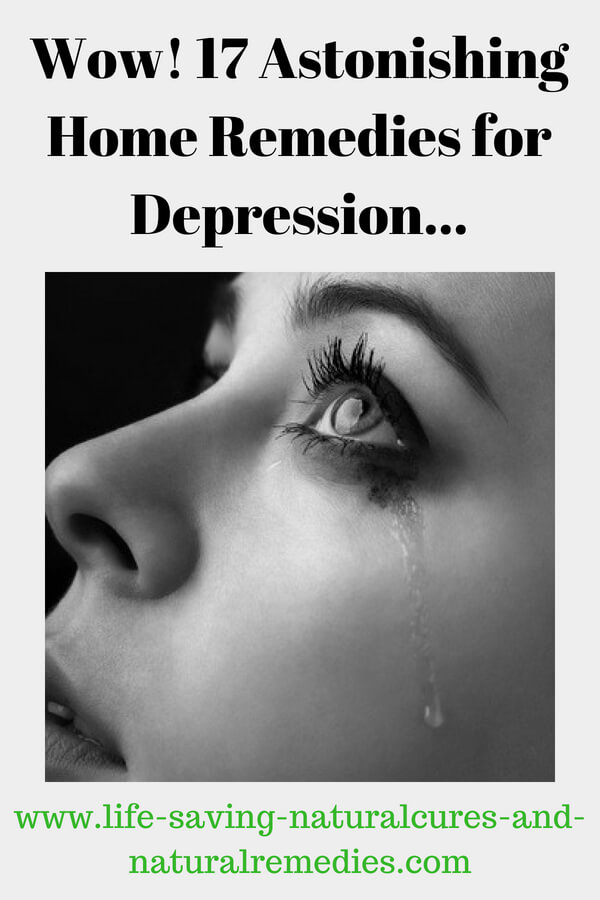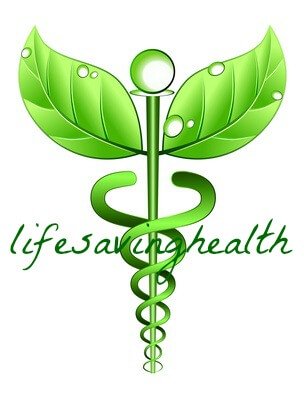Natural Remedies for Depression
The most powerful home remedies for depression begin with eating the right foods. Some will help tremendously, while others will definitely make this condition worse.
So here are the foods you need to avoid and the foods you need to be eating more of to successfully treat your depression...
Article by Troy Sawyer (Certified Holistic Nutritionist, Health & Wellness Coach, Sports Nutritionist)
Updated January 7, 2026 -- This post contains affiliate links
There’s a saying in the health and fitness world... if you eat crap, you’ll feel like crap (and you'll look like crap).
How true this is.
You simply cannot expect to live off junk and garbage and feel good, it’s literally impossible!
Why?
Because refined and processed foods and junk foods contain empty calories, which basically means they contain nothing of value for your body (no nutrients). If you’ve already read our first article on depression remedies, you'll understand why this is so important. If you haven’t then we recommend you click on the link below and read this first then come back to this page...
Home Remedies for Depression That Get Powerful Results
So as you continue to eat these foods that contain empty calories, your body actually craves more food because it’s not getting the nutrients it needs (a condition called Pica or Cribbing) and so the eating merry-go-round continues. This causes problems such as low blood sugar levels, low thyroid function and low adrenal gland function. And every one of these problems is a major cause of depression!
So, in addition to taking supplements that contain the full spectrum of nutrients your body must have every day, you're also going to treat (and cure) your depression by actively avoiding the “bad” foods and eating more of the “good” foods. Also remember that because you'll already be supplying your body with the nutrients it needs, it's going to be much easier for you to break the junk food cycle and eat healthier.
Foods to
Avoid for Depression...
Refined and Processed Foods: These are the main culprits that cause depression, anxiety and mood swings.
All sugars must be cut out from the diet (and this definitely includes all soda drinks). The problem with sugar is it severely depletes the body of L-tryptophan, and even if you're receiving enough from your diet, sugar stops it from being able to do its job. As you'll remember, tryptophan is one of the best “anti depression” nutrients there is.
So basically, low tryptophan equates to high levels of depression!
In addition to this, sugar also messes up adrenal function and causes a spike (then a severe drop) in insulin levels - both of which depression sufferers definitely don’t want or need.
Then we have processed foods (which of course includes all junk foods). These man-made disaster foods contain nothing but empty calories, along with all sorts of artificial additives, chemicals and toxins. There really is nothing good about these foods at all. Staying completely clear of them all the time is not easy but you must make it a priority. You will not believe the huge difference this will make to your moods and your energy levels!
Tap Water: From this day forward, vow to NEVER drink water straight from the tap again. Tap water contains deadly fluoride. This heavy metal may be good for teeth, but it also causes cancer and depression like nothing else! The problem with fluoride is it wreaks havoc on the thyroid gland, which then leads to mood problems such as depression and anxiety. (It’s interesting that nearly all anti-depressant drugs, including Prozac, are fluoride products. Strange don’t you think, considering it actually causes depression?)
So only ever drink clean, filtered water from now on. A water purifier (such as these) may not be cheap, but you'll be thanking yourself in a few months time when you notice the difference in how you’re feeling. Keep in mind that bottled water is no good either. Too many bottled water companies have been caught out supplying suspect water, many of which after testing were found to be no better or healthier than tap water (and may have even been).
Excitotoxins, Including Artificial Sweeteners and MSG: Excitotoxins are shocking additives that should not be allowed in our food supply. But unfortunately they are so all we can do is try to avoid them as much as we can. The problem is artificial sweeteners and MSG are in so many foods today, so you really need to get good at reading labels and asking what's in the food you're eating before you eat it! (Especially if you happen to be eating out).
Excitotoxins upset neurotransmitters in the brain, causing them to go totally out of whack. This can have a major impact on moods and sleeping patterns. The other down side to artificial sweeteners such as aspartame is they actually make you crave carbohydrates and put on fat, not lose it! Yes I know, this seems illogical considering they're promoted as “diet supplements”, but it’s true. A blockbuster study performed by the University of Texas back in 2005 confirmed this astonishing find... Aspartame & MSG Make You Fat, Cause Depression.
So let me see if I’ve got this right… If you're trying to lose weight, and you suffer from depression, and you eat and drink diet products, you are actually going to put on weight and become even more depressed?
Not a very good combination is it?
Caffeine and Alcohol: Although caffeine and alcohol relax the body and boost energy, once they wear off they severely dampen our mood, which only worsens problems such as anxiety, depression, mood swings and insomnia. Think of it like being told you just won a million dollars (euphoria) only to find out later that it was a mistake (despair). This is the kind of emotional roller coaster ride these two substances cause, so both are best kept to a bare minimum.
Foods to Eat
for Treating Depression...
Probiotic Rich Foods: The link between a lack of good gut bacteria and the occurrence of mood problems such as depression and anxiety is slowly gathering pace. Psychologists still think this one's a load of baloney, but we strongly suggest you consider it. There's now some solid evidence that suggests probiotics can help tremendously with depression due to what's known as the "gut-brain axis". This basically means that the stomach and the brain are inextricably linked, and scientists are just now starting to realize this... The Gut-Brain Axis: The Missing Link in Depression.
So how it works in simple terms is you fix your intestinal problems and you fix your mood problems!
And the best way to repair the gut and get it healthy is through the daily consumption of probiotics (good bacteria). Good gut bacteria have a high turnover rate, which means they don't survive for very long, so you must keep topping up your supply every day. To do this, find yourself a good quality probiotic supplement to take every day, along with culturing and fermenting your own foods (sauerkraut, kefir, etc). This practice is not hard to do and we guarantee it will pay you big dividends health wise. Here's a great website that tells you everything you need to know on fermenting your own probiotic rich foods... CulturesForHealth.
And to read more about the link between probiotics and depression, have a read of this terrific article by well-known health expert Chris Kresser... 5 Uncommon Uses for Probiotics.
Omega-3 Fatty Acids: Omega-3’s are essential for normal brain functioning. Plenty of studies have linked low levels of omega-3 fatty acids with depression. In fact, in Japan and Taiwan, where they regularly eat cold water fatty fish, the rate of depression is 10 times lower than that of the United States. Postpartum depression is also far less common. 1
So to boost your omega-3 intake you must supplement (with either fish oil or krill oil) and try to eat cold water fatty fish such as herring, salmon, mackerel and sardines at least 3 times a week. Just remember, with the fish oil capsules you will need to take between 10-12 of the 1000mg capsules per day with food for maximum benefit. Anything less just won’t have the desired effect.
Turmeric: Turmeric is definitely one of the most potent natural remedies for depression and anxiety you'll find. It contains a substance known as curcumin, which is one of the strongest antioxidants and anti-inflammatories yet discovered. Because depression is basically a “brain inflammation” type disorder, sufferers benefit greatly from the anti-inflammatory components contained in tumeric. The other benefit is of course the antioxidants, which help to remove dangerous chemicals and heavy metals from the brain.
Turmeric should be used in your cooking as much as possible (you literally cannot have too much of this amazing food!) You can also add 1-2 heaped teaspoons to a smoothy every day, or for a more concentrated and powerful mix, take a high strength curcumin supplement.
Green Tea: Green tea also contains some extremely potent antioxidants known as catechins or EGCG’s. These antioxidants are 1000 times stronger at scavenging free radicals than vitamin C and vitamin E. Depression sufferers need plenty of antioxidants, so this makes green tea another powerful addition to your treatment arsenal.
Matcha green tea is the best and highest quality green tea you can get so try and drink this if you can. If not, regular green tea will still suffice. You need to drink between 4-6 cups of green tea a day for maximum benefit and effect. If you struggle with the taste, you can always buy one of the many blended varieties that are available.
Fruits, Vegetables, Nuts and Gluten Free Grains: Yes I know, these aren’t the most exciting foods in the world to eat, especially if you’ve been living off refined and processed foods and junk foods for a while. But fruits, vegetables, nuts and grains are all extremely beneficial and many contain high amounts of the anti-depression nutrients L-tyrosine and L-tryptophan, along with high levels of antioxidants.
Here’s a list of some of the fruits, vegetables, nuts and grains you need to be eating plenty of...
Alfalfa, asparagus, avocado, apples, broccoli, beetroot, bananas, carrots, cherries, natural cheese, cottage cheese, organic chicken, natural chocolate, cucumbers, eggs, fennel, fish, figs, hazelnuts, hummus, lettuce, lentils, leeks, milk (only if it’s straight from a cow), organic or MSA grade beef, parsley, pumpkin seeds, rice, sesame seeds, sunflower seeds, strawberries, spinach, sweet potato, watermelon, watercress, natural yogurt, almonds and cashews. In fact, in regards to eating cashews for depression, health experts have said that eating two handfuls of these nuts every day is actually the therapeutic equivalent of a prescription dose of Prozac!
"Home
Remedies for Depression" Final Note...
It’s also worth noting here that many sufferers of depression are also susceptible to food intolerance's, particularly gluten (gluten can cause significant inflammatory conditions in the brain which result in mood swings and depression). It's therefore advisable that you follow a gluten free diet, particularly in the beginning. This will give you a strong start and ensure a potent and thorough “brain cleanse”.
Recent Articles...
-
15 Powerful Natural Treatments & Home Remedies for Shingles...
Jan 15, 26 09:00 AM
Here's the most potent (and best) natural treatment for shingles yet discovered, along with other home remedies for shingles nerve pain that are a sure-fire way to get rid of this awful health problem… -
Top 10 Home Remedies for IBS Relief...
Jan 11, 26 09:00 AM
Yes, the most potent home remedy for irritable bowel syndrome you’ll come across is here, along with other natural remedies for IBS that are guaranteed to treat and heal this horrid health problem qui…



Yes, We Value Your Comments and Opinions...
Ask a question or have your say on what you've just read by leaving us a comment in the box below...